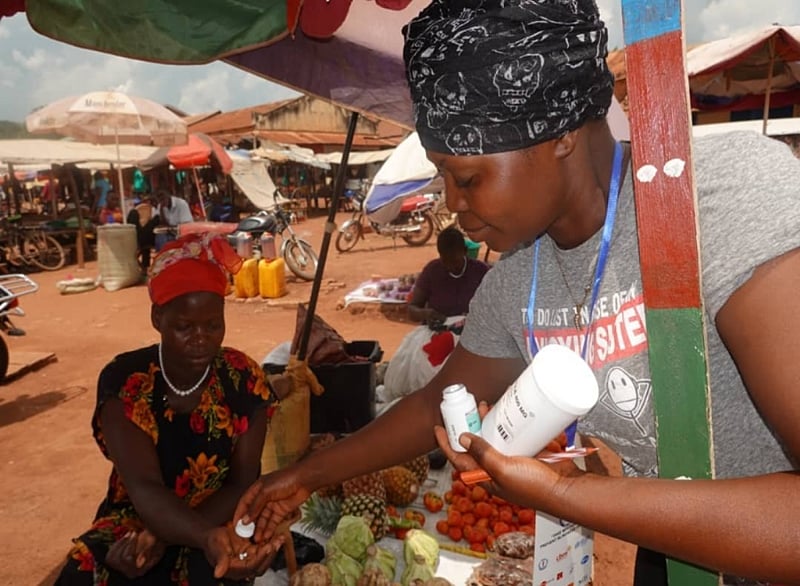Paragraph 1: The Looming Threat of Onchocerciasis and Ghana’s Response
Onchocerciasis, commonly known as river blindness, remains a persistent public health challenge in many parts of sub-Saharan Africa, including Ghana. This parasitic disease, transmitted through the bites of infected blackflies, can lead to debilitating skin conditions, severe itching, and ultimately, irreversible blindness. The Ghana Health Service (GHS), recognizing the urgency of the situation, is gearing up for its second round of Mass Drug Administration (MDA) in 2025, aiming to curb the spread of this neglected tropical disease (NTD). This focused intervention represents a critical step toward the World Health Organization’s (WHO) goal of eliminating onchocerciasis by 2030.
Paragraph 2: Strategic Deployment of MDA across Ghana’s Endemic Regions
The planned MDA is slated to commence on January 27th and continue until February 8th, 2025, spanning 79 districts across 15 regions of Ghana. Conspicuously absent from this list is the Volta Region, where transmission has been successfully interrupted, highlighting the potential for eradication through sustained public health efforts. The MDA will focus on regions where onchocerciasis remains endemic, deploying over 15,200 volunteers and health workers to administer the medication, ivermectin, to at-risk populations. The goal is to achieve an 85% coverage rate to effectively disrupt the transmission cycle of the parasite.
Paragraph 3: The Mechanics of Onchocerciasis Transmission and Manifestation
Onchocerciasis is caused by the filarial worm Onchocerca volvulus. These parasitic worms are transmitted to humans through the bites of infected blackflies, which breed in fast-flowing rivers and streams, typically located near remote villages. Once inside the human host, the adult worms produce thousands of microscopic larvae called microfilariae, which migrate throughout the body, causing a range of debilitating symptoms. The most prominent symptom is intense itching, often accompanied by skin lesions and disfiguration. Over time, the microfilariae can invade the eyes, leading to inflammation, visual impairment, and eventual blindness.
Paragraph 4: Ivermectin: The Cornerstone of Onchocerciasis Control
The primary weapon against onchocerciasis is the drug ivermectin, a safe and effective medication that targets the microfilariae, significantly reducing their numbers in the body and thereby mitigating the severity of symptoms. While ivermectin does not kill the adult worms, it effectively interrupts the transmission cycle by reducing the number of microfilariae available to infect the blackflies. The repeated administration of ivermectin through MDA programs has proven instrumental in controlling the spread of onchocerciasis in endemic areas, paving the way for eventual elimination.
Paragraph 5: Protecting Vulnerable Populations during MDA
While ivermectin is generally safe, certain populations are excluded from the MDA to minimize potential risks. Pregnant women, breastfeeding mothers less than one week postpartum, and children under five years of age or less than 90 centimeters in height are not eligible for treatment. These precautions are in place to safeguard the health of these vulnerable groups and ensure the safety and efficacy of the MDA campaign.
Paragraph 6: The Importance of Community Engagement and Future Prospects
The success of the MDA hinges on the active participation of the community. Dr. Joseph Kwadwo Larbi Opare, Programme Manager of the Neglected Tropical Diseases Programme at GHS, emphasized the importance of public cooperation in achieving the program’s ambitious goals. While significant progress has been made in controlling onchocerciasis and other NTDs in Ghana, with some achieving a 90% reduction in prevalence, sustained efforts are required to maintain momentum and reach elimination targets. The upcoming MDA for onchocerciasis represents a crucial step towards achieving this objective, and continued community engagement will be essential to ensure its effectiveness and ultimately contribute to the global effort to eradicate this debilitating disease.














